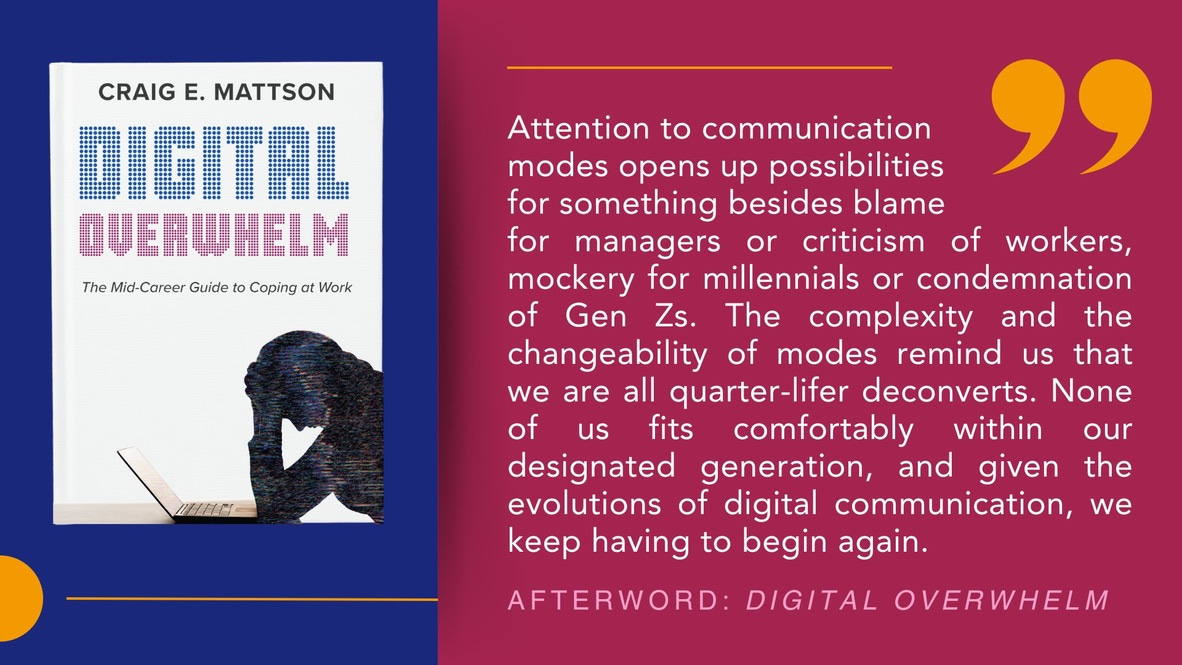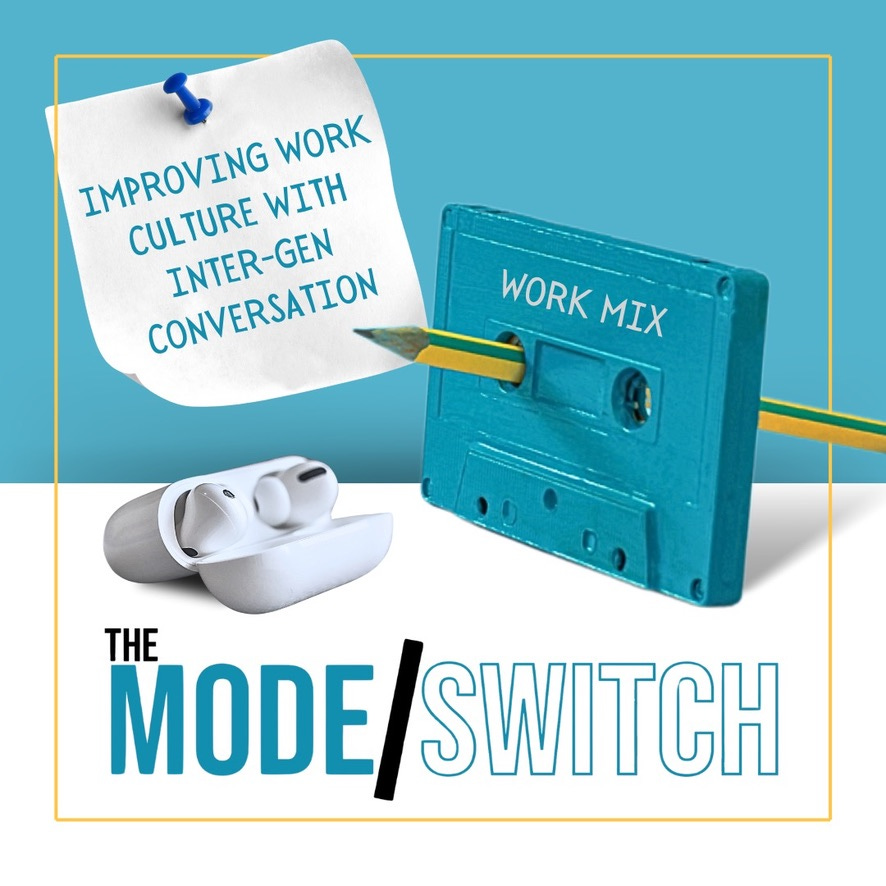How to stop repeating yourself at work
Saying the same instructions again and again to inattentive coworkers is massively annoying. But we need to discern the underlying relational conditions that make repetitiveness seem necessary.
Let’s start with a story
Interviewing Javairia Taylor, a manager at GardaWorld, gave me a better feel for the pain of repeating yourself again and again.
She told me about a security guard she genuinely liked, a guard who was funny and affable but sadly inattentive to clearly and repeatedly communicated procedures. And one day, the guard completely ignored those procedures by spending her whole shift repairing a malfunctioning elevator camera. What she didn’t do was what she was supposed to do by locking doors. When the next shift’s guard reported her, Javairia lost a night’s sleep, knowing the call she’d have to place the next morning.
The neglectful guard begged to keep her job. Javairia had to hang up on her.
When Javairia switched roles in the company, she started running into other problems of inattention. Just before Christmas one year, she hired and trained a recruiter. “And every week, I'm telling her the exact same thing as though she never heard it and she's like, ‘So what am I supposed to be doing?’”
I suspect you know what this inattention feels like. You say something to a coworker as clearly as you know how. The other person nods and jots a note. You’ve done it! You’ve spanned the gap between sender and receiver. You’ve communicated.
But then, just a few days later, you find yourself saying the same thing again.
This is a work-culture newsletter that helps you do more than cope when work’s a lot. This week, the “a lot” we’re addressing is the need to repeat yourself again and again.
Let’s explore this problem in a three-step process. We’ll look at a trend. We’ll review a study. And we’ll mode/switch a shift.
A Trend
A lot of Americans use subtitles when they’re watching TV, even when they don’t have to. They say it helps them focus.
I’m a Gen Xer who hates subtitles. I don’t like to pull out from the visual swirl of the film to read the script. So it’s hard for me not to be judgy about my Gen Z daughter who loves close-captioning. But I’m in the minority. As Nadiia Mykhalevych reported in August 2024, “America Is Obsessed with Subtitles.”
Part of the rationale for subtitles is that they keep us from multitasking while watching the telly. During commercials, I find myself three-finger-flicking my Macbook keypad to check my email. But what’s really sad is feeling the temptation to do that even during the show.
The subtitle trend comes with a cost that one Atlantic article calls “lazy listening.”
I’m interested in that use of the word “lazy.” It’s hard not to think that inattention is a moral failing. When your coworkers make you repeat themselves, aren’t they being lazy, contemptuous, and selfish?
A Study
There’s a longstanding evolutionary theory that says, in effect, no one can help their selfishness. Why? Because genes are selfish. The fittest survive, not by plugging into a group, but by ensuring their own survival. The notion that evolution happens in individuals not in groups showed up in books like George C. Williams's 1966 book Adaptation and Natural Selection or Richard Dawkins’s 1976 book The Selfish Gene. And the theory’s had a long tail.
Might this theory explain why so many workers are inattentive to instructions? What’s good for the corporation, in other words, isn’t good for me. So why should I listen? Why should I carry the water for corporate? Even when workers appear to care about an organization, this theory would suggest, they’re only doing what’s good for themselves.
If that’s true, well, our efforts at clear and effective organizational communication are mostly screwed. Your coworkers aren’t listening in order to advance the good of the company. They’re listening for the good of themselves. Of course, if this theory’s true, your efforts to speak clearly are just as self-interested as your coworkers’ inattention.
Is there anyway out of this quagmire of selfish disregard? Or are we condemned to the Sisyphean project of endlessly repeating ourselves?
A Shift
Jonathan Haidt’s book The Righteous Mind agrees with the scientists that people evolve individually. But he also believes that groups evolve. For him, group evolution means that people can become activated to behave less like selfish chimps and more like generous bees.
He calls this—in a striking variation on this newsletter’s title—a “hive switch.”
You know what this shift feels like when you’re on a dance floor and you lose yourself in the music and the crowded bodies. You know what this hive switch feels like when you’re in a tug of war contest and, for forty-five glorious seconds, you care about nothing but helping your team win. In such moments, you decenter yourself in community. And isn’t that what makes for good organizational communication—clear speaking and resilient listening—when everybody in the process seeks the good of the group rather than the leverage of the self?
But as Haidt himself concedes, organizations are less likely to find a hive switch than a hive fader. You can’t flip a toggle and transform everybody instantly into wholly attentive listeners in one electric moment. But you can make micro-adjustments that slide people away from selfish inattention to attentive generosity.
How? Haidt suggests that the experience of awe can help. So can hallucinogens. And raves. Even karaoke works. His larger point is that we need to activate a kind of “synchrony.” The more people sync up, the more they’ll hive up.
So, if you want to move coworkers towards greater attentiveness, you might try building on Haidt’s ideas:
Do more emotional check-ins during meetings. Feeling with other people—feeling near other people—can help get folks out of their heads and into a connectedness with each other.
Try more shared physical movement. It might feel initially silly, but even in remote meetings, we can practice shared breathing and do shared stretching. Even agreeing to do a meeting with everybody standing up (putting their laptops on a counter or raising a standing desk) creates synchrony and tacitly increases togetherness.
Start meetings with a Finish-the-Story game. Ask people to tell what they did over the weekend in the form of a tale. “Once upon a time…” Set the timer and give them 120 seconds (or whatever). When the timer goes off, the next person has to link to the story by connecting the plot to what they did that weekend.
A final thought
When nobody seems to be listening to you, when you have to repeat yourself again and again, it’s easy to nurse a grievance or feel some guilt. Grievance, because they never listen. Guilt because I must be a bad communicator.
But organizational communication is rarely that simple. More often, communication is what happens, not in you or in me, but in the relational between. So, when people appear selfishly inattentive, use the ideas above to shift the relational conditions. You just might make it possible for your team to attend to the whole.
-craig
P.S. Like what you’re reading here? I’m not doing paid subscriptions right now. But you can always buy me a cup of joe. (And thanks.)
A chance to meet in person
If you’ve been feeling professionally burned out or digitally overwhelmed, join me for a restorative conversation at Trinity Christian College in the Van Namen Recital Hall on March 26 at 1 PM or at the About Time bookstore in Libertyville, IL on March 27 at 7 PM.
The Libertyville conversation is co-hosted by XenoMedia. Come for the reset and stay for the free snacks, provided by Conscious Cup Coffee Roasters. See you there!
Want to hear more stories like Javairia’s above?
You can read about how dozens of working professionals are coping with the intensities of the 2020s in my new book Digital Overwhelm. The book examines six different modes of coping and make recommendations to get “unstuck” from your own favorite mode in order to collaborate more flexibly in digital spaces.
Don’t Miss the Mode/Switch Pod
Each Friday, the Mode/Switch roundtable engages an organizational expert about some question in workplace culture. Emily Bosscher, David Wilstermann, LaShone Manuel, Ken Heffner—along with a roster of Gen Z contributors—keep things lively and shrewd. Follow the Pod on Spotify or Apple Podcasts.







